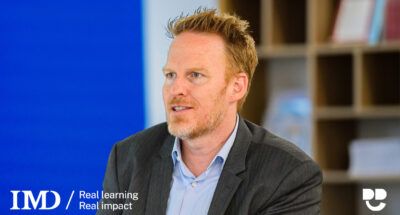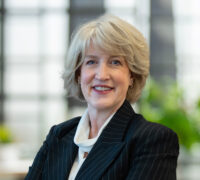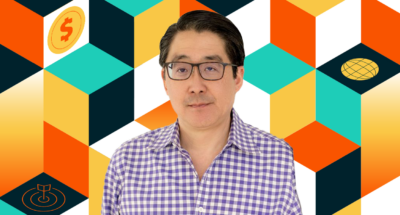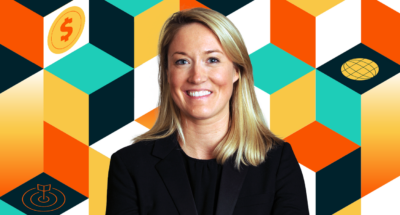
Leaders Unplugged podcast
Leaders Unplugged is real talk with the impactful. Candid, honest, actionable – and fresh from behind the scenes. Presented by IMD in collaboration with Remote Daily. Hosted by IMD’s president, David Bach....
13 March 2025 • by Howard H. Yu in The Interview Podcast Series
Julie Linn Teigland of EY tells IMD's Howard Yu why it’s better to admit you’re unsure and collaborate to find a solution....
Teigland suggests that as a genuine leader, rather than have all the answers, it’s more real to say, “Here’s what I do know, and here’s what we need to learn together.”
Listen to the podcast to hear more insights on authentic leadership in action, or read the full interview below.
Howard Yu: I’m fascinated by your journey. Looking at your career path, you never lost your real passion.
Julie Teigland: No, I haven’t. I’m still passionate.
By the time leaders reach your level, they can often be cynical. That’s what I see – deep cynicism among top leaders. Why is there widespread cynicism in the corporate world?
You’re right. A lot of people turn cynical, dangerously so. Cynicism creeps into upper management because certain long-held beliefs are no longer valid. Their foundation is crumbling. The MBA thinking from 30 years ago isn’t relevant, so people lose their way.
Leaders think they must project utter confidence. They’re terrified of seeming vulnerable. Why is that?
Because everyone, especially analysts, expects them to have answers. Wall Street demands clarity: where are you going, why, how? It’s hard for leaders to stand before them and admit, “Well, I don’t know everything.” Here is the missing piece in these conversations: a leader should be able to say, “We’re 80% sure, but this remaining 20% is unknown. Here’s where we’re investing to figure it out.” No one says that.
People feel cornered by how questions get framed. During the 2008 financial crisis, the talk was all defensive.
Exactly. The financial crisis was about assigning blame – banks, governments, everything. So, everyone was defensive: “Here’s what we’ll do, here’s the plan.”
Maybe the trauma of 2008 set the tone for how executives handle crises.
I like that theory. Of course, today’s situation is entirely different, but people are still copy-pasting the old method. The fundamental challenges in today’s world are overlooked. It is better for companies to admit they’re uncertain and invest in discovering real solutions rather than dishing out a five-point plan that’s not grounded in today’s reality. Leaders probably do it because of psychological pressures – analysts, shareholders, and employees. Everyone wants a direction, so leaders assert that they have it. But they’re not calling out the big unknowns.
With the rate of technology changes and everything else, how do you handle that conversation within EY? Employees often look up to leaders like parents: “Tell us everything’s fine.” As a responsible leader, how do you get your people to grow together and mature collectively?
As a genuine leader, you say, “Here’s what I do know, and here’s what we need to learn together.” That’s real. Take AI in professional services. It will disrupt how we deliver knowledge, staff engagements, and train our people. You can’t pretend it won’t. So, if you believe in transformative leadership, you must show some vulnerability – admit you don’t have all the answers. That honesty binds everyone together. The leader should be ready for tough questions: “If you don’t know, what are you doing about that?” You don’t have all the answers, but you outline how you plan to learn. You can’t just say, “I don’t know. Have a great day.” You say, “I don’t know, so let’s explore, test, figure it out.” That’s true transformative leadership.
I like that. Some folks hesitate to show vulnerability because they think it’s a weakness, but it’s a strength if you show a path forward. How do you re-open curiosity for senior experts who’ve been around forever and might think, “I already know all I need”? Is it possible?
Absolutely. The best learning is on a team. It might be a leadership team or a client-serving team. They bond over discovering new ideas. That experience becomes more sustainable because they do it together. And if the top leader creates urgency – explains the “why” and the purpose – nobody feels singled out. It’s not, “Bob, your expertise is obsolete.” It’s, “All of us need to explore the next steps.” That’s why setting that sense of urgency from the top is critical. We have a “Wave Space” experience – bringing leadership teams into new scenarios with new tech in a 360-degree setting. It sparks curiosity. You see them standing there, minds blown, realizing they’re experts in one corner but know nothing about adjacent fields. It’s scary but also freeing. Then, you absorb everything like a sponge. If more leaders embraced that, we’d have real transformation. Authenticity, openness, and curiosity – that’s the recipe. A leadership team that goes through that experience is tighter afterward. Everyone claims a piece of the new knowledge. A sense of possibility. That’s powerful. Executive teams that do this are stronger.
Another side to leadership is the ability to endure deep discomfort or even emotional pain. Can you expand? For example, restructuring can be very painful.
Sure. Companies are laying off thousands of people. It’s devastating for those let go and also for the leadership team that survives. You lose part of your workforce – it’s like cutting off an arm. It’s traumatic. You have to re-form that team, acknowledge what’s happened, and redistribute responsibilities. You need closure, an explicit moment where everyone recognizes what’s happened and how to move on. Hiding it under the carpet never works. The best thing is to embrace the issue, learn from it, and come out stronger. Product failures, safety recalls – you name it. The faster you admit the problem and show a path forward, the faster you repair it. If you keep ducking, it drags on.
These vital steps – the reflection and the learning – aren’t measured in quarterly reports, but they’re the lifeblood of an organization.
Right. Humans learn from mistakes, and so can companies, especially in professional services. You want the client to come back because your team knows them. It’s more efficient and meaningful. You need to remember that loyal base as you innovate.
Let’s do some fun questions before we wrap up. First, you mentioned vulnerability. How do you define it?
Being able to say what you don’t know and being open to figuring it out.
That’s lovely. What do you do when you’re afraid?
I do what I advise our young partners: consult, consult, consult. Talk with your team, your friends, and your colleagues. They might know what you don’t. That’s how you figure out solutions. That’s how you lead together.
We all use ChatGPT these days. What’s your latest favorite use case?
Benchmarking real estate prices and brainstorming Christmas gift ideas. For instance, ChatGPT suggested a cocktail-mixing machine – very cool. The more advanced your prompts, the more interesting the results, but watch for hallucinations.
Finally, what’s the latest movie or show you have loved?
I saw Wicked last week – three hours of pure wonder with my 17-year-old son. We had a blast.

LEGO® Chair Professor of Management and Innovation at IMD
Howard Yu, hailing from Hong Kong, holds the title of LEGO® Professor of Management and Innovation at IMD. He leads the Center for Future Readiness, founded in 2020 with support from the LEGO Brand Group, to guide companies through strategic transformation. Recognized globally for his expertise, he was honored in 2023 with the Thinkers50 Strategy Award, recognizing his substantial contributions to management strategy and future readiness. At IMD, Howard directs the Strategy for Future Readiness program.

Managing Partner at EY

24 March 2025 • by David Bach, Felix Zeltner in Podcasts
Leaders Unplugged is real talk with the impactful. Candid, honest, actionable – and fresh from behind the scenes. Presented by IMD in collaboration with Remote Daily. Hosted by IMD’s president, David Bach....

13 February 2025 • by Raphaël Grieco, Karl Schmedders in Podcasts
The founder of Cendana discusses the strategies for partnering with emerging general partners...

30 January 2025 • by Karl Schmedders, Raphaël Grieco in Podcasts
The CIO at Portfolio Advisors discusses the challenges of realising returns in an increasingly sophisticated VC market ...

21 January 2025 • by Shelley Zalis in Podcasts
In the early 1900s, Einstein’s Theory of Relativity, E = mc², reshaped our understanding of the universe and changed the world as we knew it. The Theory of Equality™, E = FQ²,...
Explore first person business intelligence from top minds curated for a global executive audience